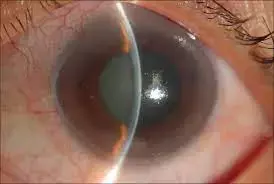- Home
- Medical news & Guidelines
- Anesthesiology
- Cardiology and CTVS
- Critical Care
- Dentistry
- Dermatology
- Diabetes and Endocrinology
- ENT
- Gastroenterology
- Medicine
- Nephrology
- Neurology
- Obstretics-Gynaecology
- Oncology
- Ophthalmology
- Orthopaedics
- Pediatrics-Neonatology
- Psychiatry
- Pulmonology
- Radiology
- Surgery
- Urology
- Laboratory Medicine
- Diet
- Nursing
- Paramedical
- Physiotherapy
- Health news
- Fact Check
- Bone Health Fact Check
- Brain Health Fact Check
- Cancer Related Fact Check
- Child Care Fact Check
- Dental and oral health fact check
- Diabetes and metabolic health fact check
- Diet and Nutrition Fact Check
- Eye and ENT Care Fact Check
- Fitness fact check
- Gut health fact check
- Heart health fact check
- Kidney health fact check
- Medical education fact check
- Men's health fact check
- Respiratory fact check
- Skin and hair care fact check
- Vaccine and Immunization fact check
- Women's health fact check
- AYUSH
- State News
- Andaman and Nicobar Islands
- Andhra Pradesh
- Arunachal Pradesh
- Assam
- Bihar
- Chandigarh
- Chattisgarh
- Dadra and Nagar Haveli
- Daman and Diu
- Delhi
- Goa
- Gujarat
- Haryana
- Himachal Pradesh
- Jammu & Kashmir
- Jharkhand
- Karnataka
- Kerala
- Ladakh
- Lakshadweep
- Madhya Pradesh
- Maharashtra
- Manipur
- Meghalaya
- Mizoram
- Nagaland
- Odisha
- Puducherry
- Punjab
- Rajasthan
- Sikkim
- Tamil Nadu
- Telangana
- Tripura
- Uttar Pradesh
- Uttrakhand
- West Bengal
- Medical Education
- Industry
Netarsudil significantly reduces IOP in patients with refractory glaucoma: study

Netarsudil should be considered in patients with glaucoma according to a recent study published in Optometry and Vision Science.
The real-world pharmacological use of netarsudil shows that it can produce a clinically significant decrease in intraocular pressure for a small group of patients, even if they are already taking three or four other hypotensive glaucoma medication classes.
This study aimed to assess the effectiveness of netarsudil in reducing intraocular pressure among veterans with advanced glaucoma on maximally tolerated medical therapy.
All patients with glaucoma who received netarsudil between June 2018 and April 2020 from the West Los Angeles Veterans Administration Medical Center were reviewed. Inclusion criteria included a minimum of one intraocular pressure measurement in each of two-time windows (within and after 4 months of netarsudil use). Exclusion criteria included medication nonadherence, change in treatment plan before post-treatment intraocular pressure could be obtained, corneal disease precluding reliable measurement, outside follow-up, and loss to follow-up. Intraocular pressure at baseline and that at two-time windows were compared using analyses of variance. Relationships between intraocular pressure and number of baseline medications and concurrent statin therapy were evaluated. Netarsudil tolerability was reported.
The results of the study are:
- Of 200 patients prescribed netarsudil, 42 patients (eyes) met the enrollment criteria. The mean age of these patients was 75.7 years 64% were of African descent, 79% had open-angle glaucoma, and the mean number of baseline medications was 3.7
- Baseline intraocular pressure of 17.2 mmHg decreased to 15.1 mmHg, and a reduction of >20% was seen in 30.9% of patients after 4 months of netarsudil therapy.
- Intraocular pressure reduction was not associated with a number of baseline medications or systemic statin use.
Thus, Netarsudil may produce a clinically significant intraocular pressure reduction in up to a third of the patients with advanced glaucoma already on maximally tolerated medical therapy.
Reference:
Kianian, Reza BS1; Hulbert, Samuel W. PhD1; Law, Simon K. MD, PharmD1,2; Giaconi, JoAnn MD1,2∗. Effectiveness of Topical ρ-Kinase Inhibitors in Veterans with Severe Glaucoma on Maximally Tolerated Medical Therapy. Optometry and Vision Science: August 2022 - Volume 99 - Issue 8 - p 626-631 doi: 10.1097/OPX.0000000000001925
Dr. Shravani Dali has completed her BDS from Pravara institute of medical sciences, loni. Following which she extensively worked in the healthcare sector for 2+ years. She has been actively involved in writing blogs in field of health and wellness. Currently she is pursuing her Masters of public health-health administration from Tata institute of social sciences. She can be contacted at editorial@medicaldialogues.in.
Dr Kamal Kant Kohli-MBBS, DTCD- a chest specialist with more than 30 years of practice and a flair for writing clinical articles, Dr Kamal Kant Kohli joined Medical Dialogues as a Chief Editor of Medical News. Besides writing articles, as an editor, he proofreads and verifies all the medical content published on Medical Dialogues including those coming from journals, studies,medical conferences,guidelines etc. Email: drkohli@medicaldialogues.in. Contact no. 011-43720751


